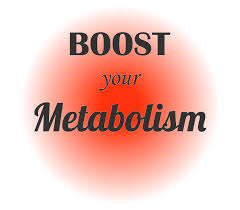 When most people think about metabolism, they think about energy conversion: specifically how many kcal they burn per day. You’ve heard folks say, “I can’t lose weight because I have a slow metabolism” but is that really true? Or is it like saying I’m big boned?
When most people think about metabolism, they think about energy conversion: specifically how many kcal they burn per day. You’ve heard folks say, “I can’t lose weight because I have a slow metabolism” but is that really true? Or is it like saying I’m big boned?
Every other Thursday, I get to do a Health and Fitness segment on Channel 41’s KCLIVE TV show with Michelle Davidson and Joel Nichols.
This week we discussed how we can support or sabotage our metabolism. Check out our quick 3 minute video!
Even when you’re at rest, your body needs energy for all its “hidden” functions, such as breathing, circulating blood, adjusting hormone levels, and growing and repairing cells. The number of calories your body uses to carry out these basic functions is known as your basal metabolic rate — what you might call metabolism.
Several factors determine your individual basal metabolic rate, including:
- Your body size and composition. The bodies of people who are larger or have more muscle burn more calories, even at rest.
- Your sex. Men usually have less body fat and more muscle than do women of the same age and weight, burning more calories.
- Your age. As you get older, the amount of muscle tends to decrease and fat accounts for more of your weight, slowing down calorie burning.
- Hormones. Thyroid and stress hormones can affect metabolism.
Energy needs for your body’s basic functions stay fairly consistent and aren’t easily changed. Your basal metabolic rate accounts for about 70 percent of the calories you burn every day.
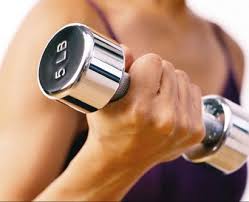 So what can we do to make sure our metabolism is healthy and functioning well? Here are five sure fire ways to boost your metabolism.
So what can we do to make sure our metabolism is healthy and functioning well? Here are five sure fire ways to boost your metabolism.
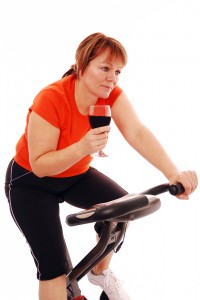 Too much cardio can have a boomerang effect and actually undermine your ability to maintain muscle. This is due to the release of stress hormones which short circuit our metabolism and may actually trigger you to gain weight! IRONIC!
Too much cardio can have a boomerang effect and actually undermine your ability to maintain muscle. This is due to the release of stress hormones which short circuit our metabolism and may actually trigger you to gain weight! IRONIC!
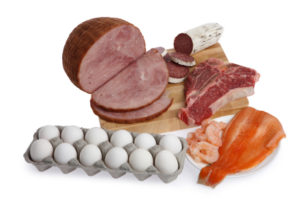 So how much protein do we need to eat?
So how much protein do we need to eat?
Less than you might think. In fact, you can get all the health benefits you need from moderate exercise that won’t make you huff and puff, even if you do it in little chunks — as long as it adds up to enough total activity.
The term “cardiometabolic exercise” (CME) encompasses a range of activities, from climbing the stairs in your office building to pushing yourself on an elliptical. All these things will improve your heart, your metabolism, and your health.
The key is to do enough and to do it often enough. For health, doctors should “prescribe” at least 30 minutes of moderate exercise or 15 minutes of intense exercise a day
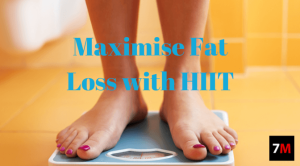 Mix daily activities, formal workouts, and sports play to get the exercise you need for health. And for best results, do some stretching nearly every day and some strength training two or three times a week.
Mix daily activities, formal workouts, and sports play to get the exercise you need for health. And for best results, do some stretching nearly every day and some strength training two or three times a week.
The older we get, the more we need these supplementary activities. And as the years roll on, most of us will also benefit from some simple exercises to improve balance and prevent falling, a major health problem for seniors.
 At Pilates 1901 we have a huge variety of 30 minute High Intensity Interval Training classes as well as 50 minute core and flexibility classes to help kick your butt and your metabolism into high gear.
At Pilates 1901 we have a huge variety of 30 minute High Intensity Interval Training classes as well as 50 minute core and flexibility classes to help kick your butt and your metabolism into high gear.
Questions? Email us NOW!


Leave a Reply